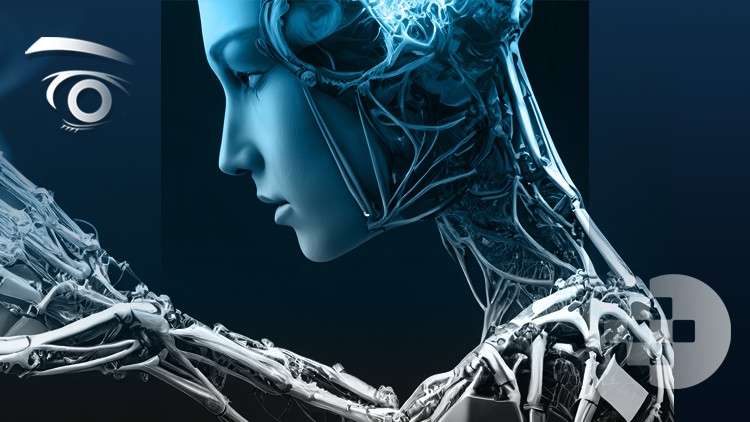
Exploring the Ethical, Logical, and Conceptual Underpinnings of AI Technologies and Their Societal Impacts
What you will learn
Understand the ethical implications of AI in modern society
Explore the logical foundations of AI algorithms
Analyze philosophical texts related to intelligence and consciousness
Assess the impact of AI on social inequalities
Develop critical thinking skills for responsible AI innovation
Examine historical perspectives on intelligence and ethics
Engage in interactive discussions and collaborative projects
Learn to articulate views on AI capabilities and limitations
Apply ethical frameworks to real-world AI case studies
Prepare for AI challenges in various professional fields
Why take this course?
The intersection of artificial intelligence (AI) and philosophy offers a profound exploration into the ethical, logical, and conceptual foundations that underpin these transformative technologies. This course invites you to delve into the multifaceted realm of AI, where critical thinking and philosophical inquiry converge to address some of the most pressing questions of our time. By enrolling in this course, you are embarking on a journey that not only enhances your understanding of AI technologies but also equips you with the intellectual tools to navigate their societal impacts.
Our course provides a unique opportunity to explore the philosophical dimensions of AI, guiding you through the intricate tapestry of ethical considerations, logical frameworks, and conceptual paradigms that shape our understanding of intelligent systems. The curriculum is meticulously designed to foster a deep appreciation of the foundational theories and principles that inform the development and deployment of AI. Through thought-provoking discussions and rigorous analysis, you will engage with the ethical dilemmas and moral responsibilities that arise in the context of AI, examining scenarios that challenge our perceptions of autonomy, agency, and human dignity.
A distinctive feature of this course is its interdisciplinary approach, bridging the gap between philosophy and computer science. You will gain insights into the logical underpinnings of AI algorithms and architectures, understanding how these systems emulate cognitive processes and reasoning. By exploring the philosophical questions related to machine learning, neural networks, and decision-making, you will appreciate the complexities and limitations of creating machines that mimic human intelligence. This holistic perspective not only enhances your technical knowledge but also cultivates a critical mindset essential for responsible innovation.
Engagement with historical and contemporary philosophical texts is a cornerstone of this course, providing a rich context for understanding the evolution of thought around intelligence, consciousness, and ethical conduct. You will examine seminal works by philosophers such as Aristotle, Descartes, and Turing, alongside contemporary thinkers who grapple with the implications of AI in modern society. By tracing the lineage of philosophical thought, you will develop a nuanced perspective on how historical insights inform current debates and future directions in AI research and application.
The ethical considerations of AI are paramount in this course, as we confront the societal implications of deploying intelligent systems across various domains. You will critically assess issues such as bias, privacy, accountability, and transparency, exploring how AI technologies can perpetuate or mitigate social inequalities. Through case studies and real-world examples, you will analyze the ethical frameworks that guide the responsible development of AI, considering perspectives from diverse cultural and social contexts. This ethical lens equips you with the ability to anticipate and address the moral challenges that arise in your professional endeavors.
Furthermore, the course emphasizes the importance of conceptual clarity in the discourse on AI. You will engage with fundamental questions about the nature of intelligence, consciousness, and the potential for machines to possess qualities traditionally attributed to humans. By dissecting these concepts, you will refine your ability to articulate and defend your views on the capabilities and limitations of AI. This intellectual rigor is invaluable in both academic and professional settings, where clear and persuasive communication is essential.
Interactive learning experiences are integral to the course, fostering a dynamic environment where ideas are exchanged, debated, and refined. Through seminars, workshops, and collaborative projects, you will engage with peers and instructors, enriching your understanding through diverse perspectives. These interactive sessions are designed to challenge your assumptions and encourage critical thinking, ultimately leading to a more profound and comprehensive grasp of the subject matter.
The course also prepares you for the practical implications of AI in various professional fields. Whether you are pursuing a career in technology, philosophy, law, or public policy, the insights gained from this course will inform your approach to AI-related challenges. You will learn to navigate the ethical and philosophical dimensions of AI implementation, ensuring that your contributions to the field are thoughtful, responsible, and impactful. This preparation not only enhances your professional competence but also positions you as a leader in the ongoing discourse on AI and society.
By the conclusion of the course, you will have developed a well-rounded and informed perspective on the philosophical and foundational aspects of AI. You will be equipped with the analytical skills to critically assess AI technologies and their societal implications, as well as the ethical sensibility to advocate for responsible practices. This course is not merely an academic endeavor; it is an invitation to engage with one of the most significant technological developments of our era, shaping your intellectual and professional trajectory in meaningful ways.
We invite you to join us in this exploration, where philosophy and technology intersect to illuminate the path forward in the age of artificial intelligence. Your participation will not only enrich your own understanding but also contribute to the collective effort to navigate the ethical and conceptual challenges posed by AI. Enroll now to embark on this transformative journey, and become part of a community dedicated to thoughtful and principled engagement with the technologies that are reshaping our world.